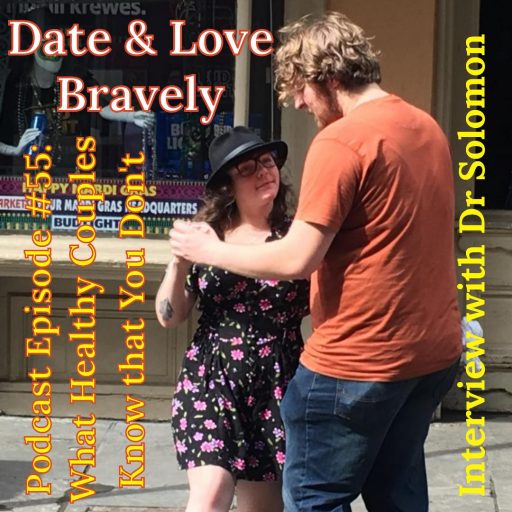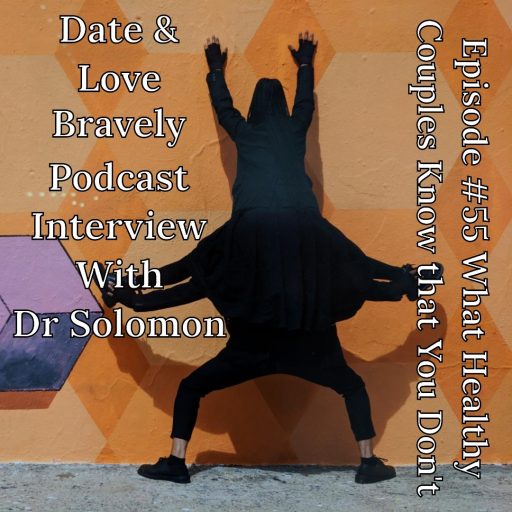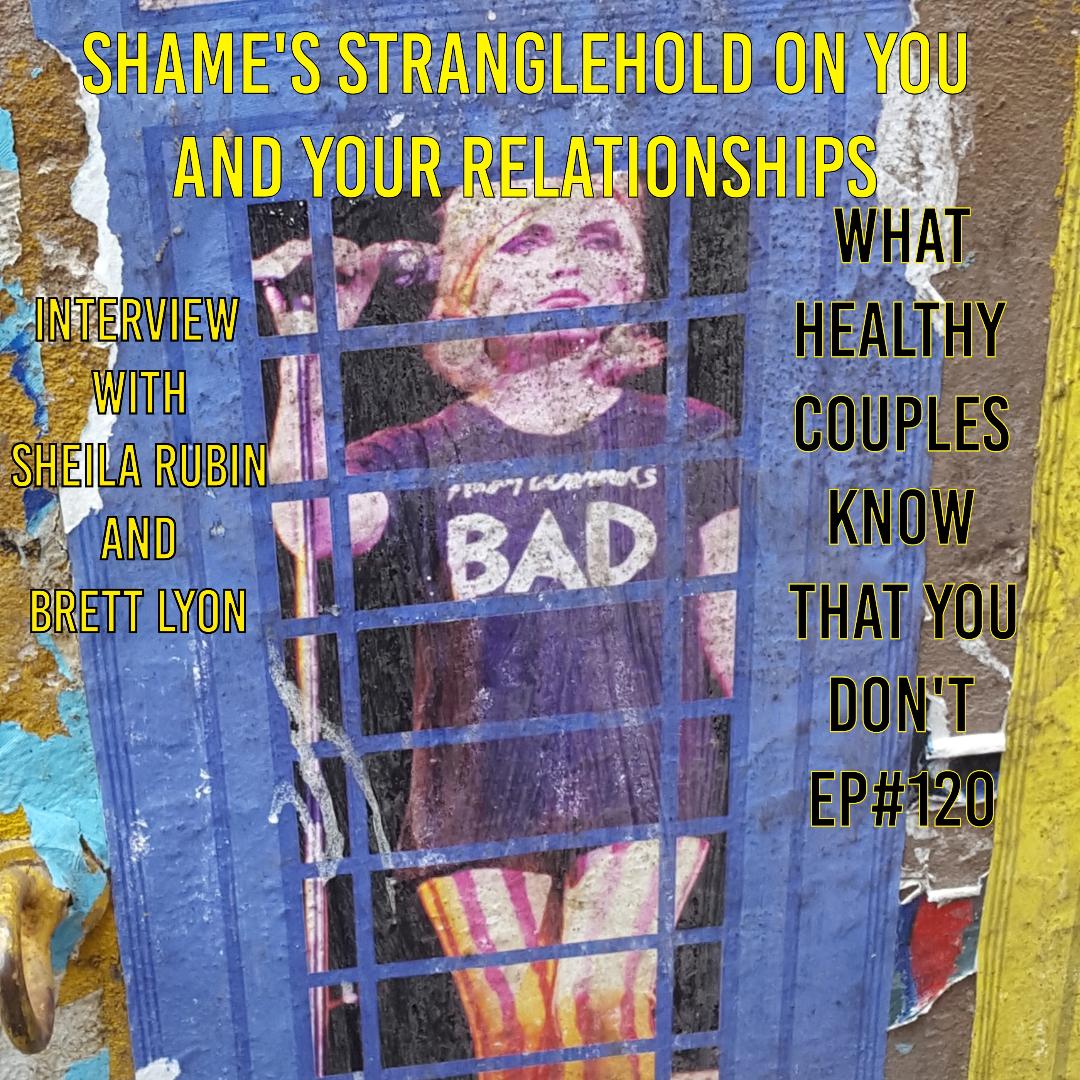Dating to learn more about yourself. Don’t stay in the safety of passivity, watching who they are. Dates can be practice to grow. Think of “every intimate partnership as a classroom in which I can learn again and again about myself, about commitment, about integrity, about authenticity, forgiveness & about apology.” Quote & Interview with Dr.Solomon

>Share the Love & Spread the Word
PLEASE Tweet or SHARE on Facebook (sooooo helpful)
Subscribe on Apple Podcasts: HERE & please leave a review. THANKS!!!!!
PLEASE LISTEN ABOVE or Read Below:
Rhoda: Date with integrity is something that you talk a lot about, could you say more about what that means?
Dr Solomon: So dating with integrity to me is about aligning your values, your believes, your thoughts, your actions and then your behaviors and so sometimes the relational self-awareness work is understanding what your values are, especially for those of us you know when we think about development, eighteen to twenty-five years of life is when we do what we call differentiation.
You know differentiating from our family, figuring out who am I versus who is my family, our values, we are given oftentimes either explicitly or implicitly, a set of values from our family, from our religious institutions, from our schools and it may be that that set of values we are going to swallow it whole heartedly.
It works perfectly for us, but for many of us there’s a sorting process of what is it I want to keep from my family of origin? what do I want to shed? what do I want to replace that with? and so cultivating what is my compass north? what grounds me? and how do I know when I have met my integrity? meaning when I’m making choices that leave me feeling good about myself and I can look myself in the mirror and feel comfortable and at ease, that’s really an important process.
So dating with integrity is making choices where you can kind of stand in a comfortable sense of who you are and it can be difficult, you know we talk a lot about the dating world is gruesome and it’s so rough out there yes and the dating world is full of people who are just trying to do their best and so it is really important to figure out what’s the support that I need in order to move through the world, kind of following the golden rule, right?
Doing unto others as I would have them do unto me, like that sort of rather than a race to the bottom of sorts; of who can care less or who can be less vulnerable.
You don’t have to have integrity because anybody else deserves it, have integrity because you deserve it, you deserve to experience yourself as courageous, you deserve to experience yourself like watching yourself behave with maturity and care, grows us, like it just grows us, you know?
Rhoda: “Relationships are people growing machines” David Schnarch said that. If someone is ambivalent between two people, what would help them decide and any observations you have about ambivalence?

Dr Solomon: Sometimes ambivalence is well-founded and it’s because there are red flags that need our attention, some other red flags that I particularly key into are things like untreated addiction, patterns of lying and I say, untreated addiction, because people who are in recovery for addictions can be some of the most amazing partners, people who are in recovery of mental illness, oh my gosh, people who used to lie but have learned to find their integrity, like hold on to those people, those are beautiful partnerships.
So people who have had that dark night of the soul and have learned what it takes to live with Grace and awareness. So it’s all about… so if those are patterns that somebody has a ton of rigidity around, that doesn’t want to look at a defensiveness and then sort of contempt for internal work, those are some other red flags I think of. So sometimes a person is ambivalent because there are legit problematic things, but ambivalence is also part of being human, I can love my husband and not like him at the very same time.
I can be grateful for my children and enjoy some time away from them at the very same time, like one doesn’t destroy the other. So part of the lesson of ambivalence is that it invites us to hold it, to hold ambivalence, to be resilient in the face of ambivalence and to not necessarily.
I think the risk of feeling ambivalent like I don’t know if I want to get to know this person better, I don’t know if they’re quote unquote right for me, the risk is that you take that ambivalence and attach to it a story that sounds like this. My ambivalence means that they aren’t right for me, because when you know, you know, I think some of us know when we know, but some of us need to obsess in ruminate and make charts and graph, so that’s what I would want to say about that.
Rhoda: Could you share more about your point of view, that when we date we expect a lot from love today and how it contributes to expanded ambivalence?
Dr Solomon: Yes. It’s both beautiful and challenging at the very same time, that our expectations of love are higher, bigger, deeper, richer than ever before, we’ve moved from sort of a role to role connection to a soul to soul connection, that’s what the vast majority of us want, it used to be the intimate partnership was rather like plug and play, you know you found like I am the wife, you are the husband and we know the behaviors expectations roles perfectly, you know we know what each of those roles entails and I intentionally say, husband and wife because our former models were incredibly heteronormative and heterosexist and so we have moved for all kinds of reasons to a model where the way we live is that you and I are even having this conversation, right?
Like the self is an ongoing project, we cultivate and curate a sense of self over time in a way that our ancestors wouldn’t really understand what we were up to you know. So we want to create partnerships where we’re seen, like where we do really see the authentic me and do I know the authentic me? so I’m cultivating my authentic me, I want you to see my authentic me.
This is very different than as the husband you XY and Z and as the wife, I A, B and C, it’s very different, so it sense that as we expect more, there are just more things that we can twist and turn about, like is this right and going back to your question about the partner A versus partner B, it may be that partner A brings in… there’s incredible sexual chemistry and I like their family, but I’ve got some concerns about you know how we might co-parent and partner B there’s not quite as much chemistry.
All these kinds of like domains on which we can analyze, there’s a beauty in that but there’s also… it’s a bandwidth issue, it just takes a lot of strain, it takes a lot of bandwidth to sort all this stuff through versus just kind of partnering up with the boy next door, the girl next door.
Rhoda: Yeah. That’s for sure, could you talk about the filters that are branches we grab onto when we’re swimming in ambivalence? A date with several people can add to confusion.
Dr Solomon: Yeah. So when we are unsure, do I want to invest more in this relationship? or do I not? we can look for things to kind of anchor us and an easy one is around gender, like gender role expectations. So the research is clear that there’s no domain of life in which we bring rigid binary and sort of played out gender role expectations, the way we do to dating an intimate partnership, it’s really easy to project onto… especially the dating world, a man should blah-blah, a woman should bah-bah and by the way.
I’m saying it in heterosexual terms because it is so binary and it’s so rigid, but it also because of its prevalence and its stockiness, it gets sort of transposed many times into the lgbtq plus community as well in terms of this one should lead and this one should follow.
This one should pay and this one shouldn’t pay, this one should take the lead on defining how committed we are and this one shouldn’t and so that’s what it is, so the binary is around which person is authorized to say, here’s who we are to each other, which person is allowed to initiate whatever, a kiss, sex, commitment and those and when it’s a heterosexual couple, it’s really easy to heap one roll onto the male body and one role under the female body and so sometimes we will confuse, well they are not… the filter becomes, they don’t fit my definition of what a man should be and so that makes part of a rule out.
Rhoda: Because they won’t pick up the cheque on a date is the big one that I’ve heard a lot from people on a first day.
Dr Solomon: Yes. Because they won’t pick up the cheque or they didn’t hold the door open for on a date and maybe that really does truly mean this would be an awful person to bring into your life, but maybe it means that there’s a difference between you guys at this moment in time around how you carry that gender narrative and maybe it doesn’t mean more than that and maybe it means that this is an invitation for you to step into voice and say actually, I’m not comfortable splitting the cheque.
I have a more traditional gendered model than you do potentially and my expectation is that whatever it is to just put that on the table.
Rhoda: Yes, own it. My last question, would you suggest a couple of self-aware dating strategies, so that people can learn a little more about how to check in with themselves?
Dr Solomon: Yes. I’ve been collecting these self-aware and dating tips because I think they’re important. So the big one that I think is really important is to put your swiping on stimulus control, which means using your apps almost like creating a ritual around when you do it.
So I think it’s because our phones are always in our hands or accessible to us, we could possibly be swiping in line at Trader Joe’s you know while we’re walking from work to our car, we could be swiping then.
I would invite or challenge those dating to create a little bit more ritual around it because what we are doing, even if we’re only swiping for casual no-strings-attached sex, we’re still diving into this ancient sacred powerful potent alchemy of sex in the chemistry and potentially love and commitment and partnership. like it’s some big stuff that we’re tapping into and it warrants I think a kind of reverence and so I would invite people to consider, you know it’s whatever, I swipe at 7 p.m. after dinner, you know with a glass of wine on my porch, whatever the ritual looks like for you.
So there’s a kind of like intentionality to it, that’s a big one. Another one is to do a little like before during after a first date, like notice how you feel before, notice how you feel during and then how you feel after and to kind of come home and savor and integrate the experience a bit before you share it with your tribe, because your tribe, doesn’t listen with neutral ears and their voices may become louder than your own voice.
I think especially those of us who are socialized as women, we’re used to not listening to ourselves & we lose clarity and sometimes, it can be really helpful to kind of figure out how I feel first before I start to talk to you about what happened.
Rhoda: Yeah. I think that’s a great point, people really do get contaminated by other people’s voices.
Buy
Alexandra H. Book LOVING BRAVELY













